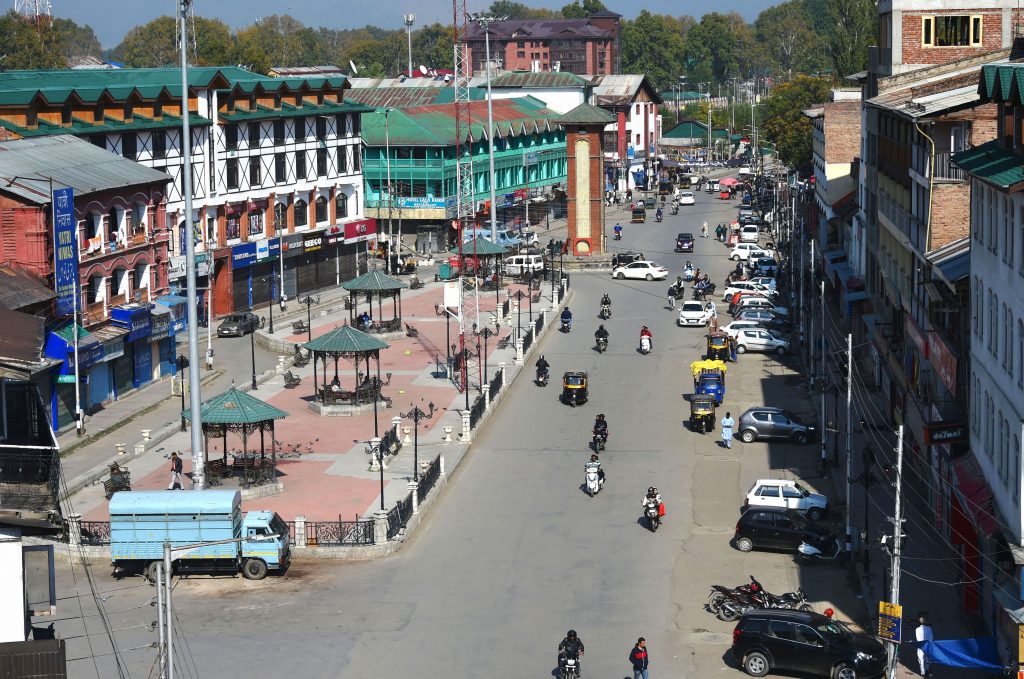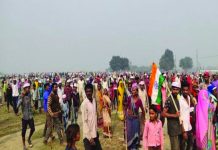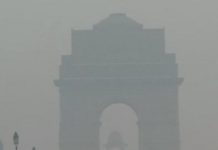
Whatever be the Supreme Court’s verdict on legality of the government decision to abrogate Article 370, it could pave the way for, at least, the Assembly elections in Jammu and Kashmir. But when? No one is sure about the timing. A report by Riaz Wani
As the Supreme Court reserves its order on the constitutionality of the revocation of Article 370, Kashmir is waiting with bated breath for the verdict. Four years after the constitutional provision was withdrawn and J&K was downgraded into two federally administered areas, both the Assembly elections and the promised statehood continues to elude the former state minus Ladakh, which is now one of the two union territories.
Whatever be the verdict of the Supreme Court, it could pave the way for, at least, the Assembly elections in J&K. But when? No one is sure about the timing. More so, when general elections are just eight months away and there is no indication that the centre has any plans to hold Assembly polls in the union territory.
In fact, during the ongoing hearings of the Article 370 case in the Supreme Court, the union government told the Supreme Court that it cannot give any exact timeframe and it would take “some time” for restoration of statehood in Jammu and Kashmir while reiterating that the union territory status is “temporary”.
Solicitor General Tushar Mehta, however, said that the Central government is ready for elections at any time as updating of the voters’ list being carried out by the Election Commission is due to be completed soon. He said that the call for election will be taken by the State Election Commission and the Election Commission of India.
But in Jammu and Kashmir few people believe that Assembly elections are around the corner. In fact, few see any hope that polls will be held even after 2024 national elections. And could in all likelihood be further delayed should the BJP return to power, which it is favourite to do.
Such a prospect indefinitely delays the restoration of statehood.
“Elections and statehood in J&K don’t appear to be the priorities of the BJP government at the centre,” said a Kashmir University teacher who didn’t want to be identified. “The reason seems not to let the grip the central government has acquired over the situation in the union territory slip and also to take the execution of its roadmap for the region to its logical conclusion.”
In a recent statement, the Lieutenant Governor Manoj Sinha said that his administration had framed a roadmap of the next 25 years about the changes that are going to happen in the union territory. And such a roadmap would hardly be realizable, should power in future pass into the hands of the local political parties who, in a democratic set up would be accountable to people. This would make them unable to take steps which don’t enjoy support among their political constituency.
But this fear of a democratic rule would only prolong the ongoing central rule and, in turn, indefinitely delay the restoration of statehood.
Unease in Jammu and Ladakh
On September 7, former J&K Chief Minister Dr Farooq Abdullah told party workers at Nawa-i-Subah complex, which houses the headquarters of his party National Conference, that the ruling BJP is non-existent in Kashmir and has forfeited its political space in the Jammu division as well.
“BJP has lost its political ground and relevance across both provinces of Jammu and Kashmir due to its anti-people policies. They had promised a lot to the people of the Jammu province but delivered poorly on the ground,” Abdullah said. “BJP betrayed the trust of the people in the region, leaving them feeling cheated. People are suffering due to dilapidated roads, huge power cuts, non-availability of potable water and acute deficiency of teaching staff in the schools.”
It is true that Jammu is witnessing a degree of anxiety about the post-Article 370 state of affairs and for more or less similar reasons as in Kashmir Valley: loss of jobs, land and identity. People apprehend that the militancy in the Valley will persuade all eligible outsiders to settle in Jammu. People from outside are expected to find Jammu safer and culturally favourable. Besides, the new residency law has already granted citizenship to West Pakistan refugees, Gurkhas and Valmikis, who live in Jammu.
In fact, other than the BJP, all other parties in Jammu, including the Congress, have expressed their unhappiness with the existing situation. An undercurrent of unease is also underlined by the videos of the interviews of the people from the region. Jammu fears becoming the first stop in the impending demographic change being facilitated by the new domicile rules for J&K.
Ditto for Ladakh
The union territory carved out of J&K is now more alienated than ever before. Ladakh has experienced significant growth in its tourism sector, attracting an increasing number of visitors. This has played a big role in bolstering the local economy. However, the region’s transition to union territory status in August 2019 has increasingly confronted Ladakhis with challenges they had not foreseen. While initially celebrating this change, they now worry about the potential influx of outsiders without adequate constitutional safeguards against the settlement of non-local residents. With a small population of around 274,000 people, Ladakhis fear being overwhelmed and losing control over their economic activities.
Earlier, the Ladakh Hill Development Council (LAHDC) demanded statehood, the extension of the sixth schedule, separate Lok Sabha seats for Leh and Kargil, and the establishment of a Public Service Commission. Notably, the Apex Body Leh (ABL) and the Kargil Democratic Alliance (KDA) have displayed rare political unity, jointly protesting and organizing strikes to advocate for their demands. Now, the LTTA, representing both districts, echoes the sentiment by opposing outside investment in tourism, driven by the shared fear of being overshadowed by outsiders in every aspect of economic activity.
Waiting for the verdict
But, for now, all eyes are fixed on the apex court’s verdict on Article 370 which might come in the near to medium future. And that would determine J&K and Ladakh’s future trajectory. In case of the SC’s endorsing the withdrawal of Article 370 and the bifurcation of the former state into two union territories, the discourse will decisively shift towards Assembly elections and the subsequent grant of statehood – truncated or otherwise – as promised by the union home minister Amit Shah himself on the floor of Parliament.
Under the circumstances, this looks to be a likely scenario. But then again, it looks highly improbable that the J&K Assembly elections will be held until after the 2024 parliamentary polls. The question, however, remains whether Assembly polls will even elude J&K should the central government implement ‘one nation, one election scheme’?












